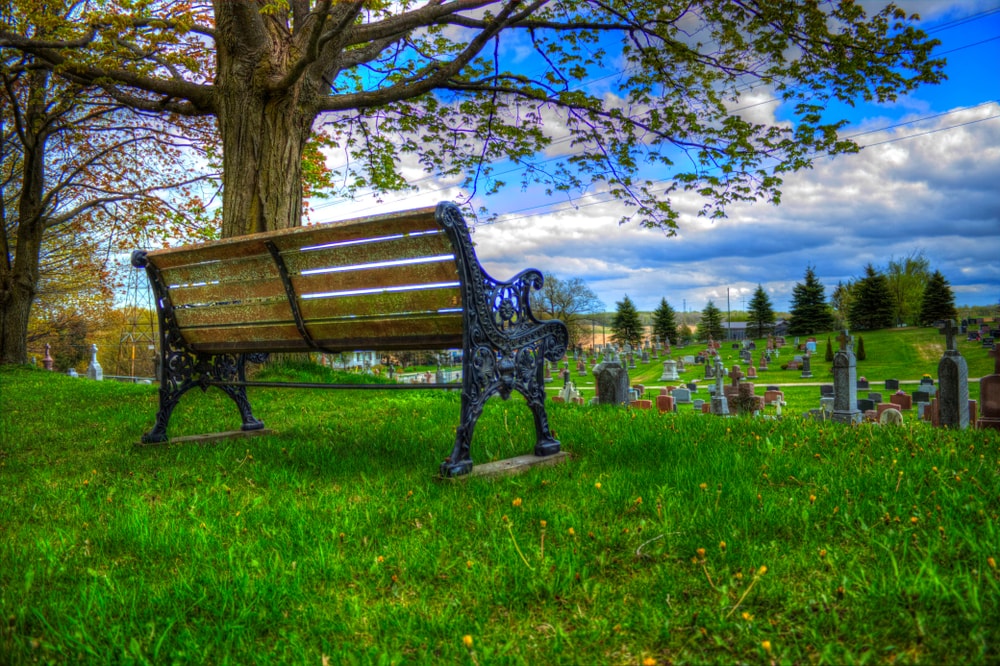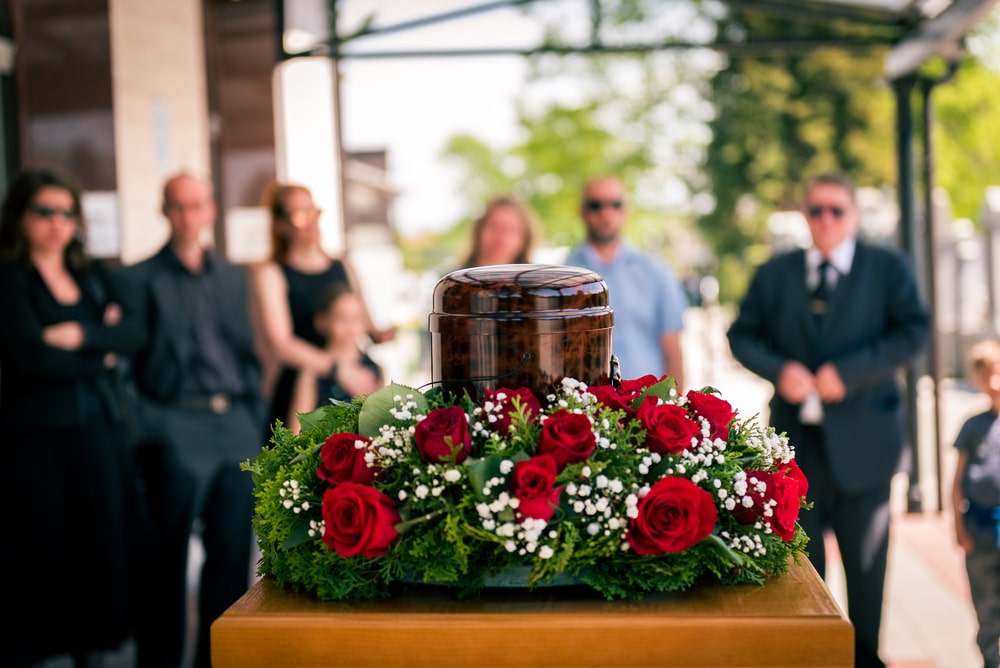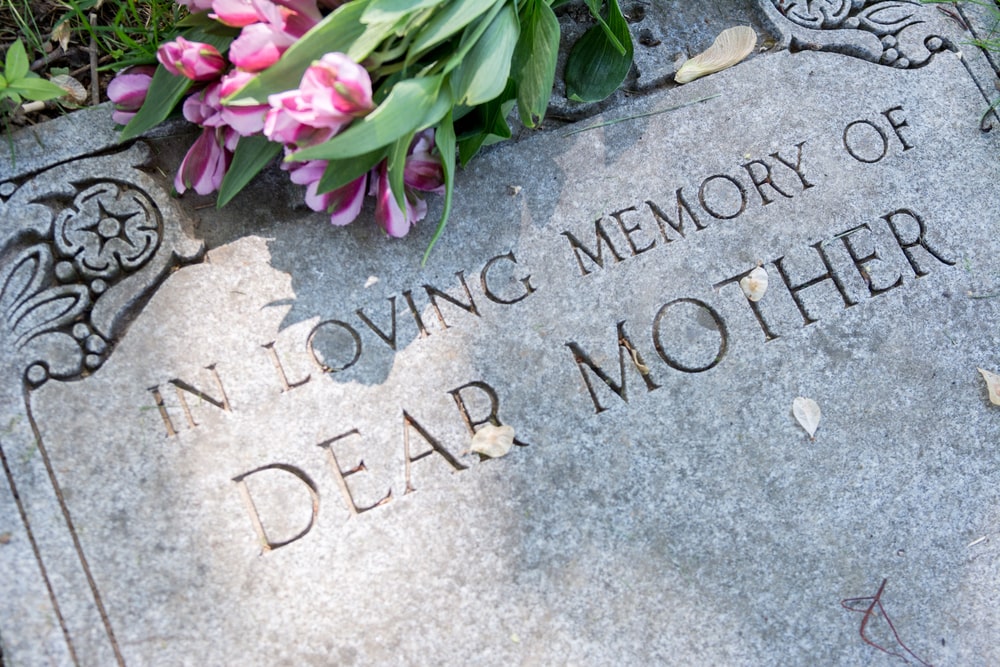
When planning a loved one’s funeral or memorial services, personalization is key to creating an event that is both healing and meaningful. The same is true when you’re considering what to include on a memorial marker (e.g., headstone, grave marker, etc.). But thankfully, there are a lot of ways to personalize a memorial marker, and one of them is bringing joy to people! What is it? Gravestone recipes!
What are Gravestone Recipes?
Memorial markers generally include the name, birth date, and death date of the person who has died. Often, the memorial marker also includes an inscription, like a sweet sentiment or kind phrase. However, some families have taken to personalizing the inscription in a new way – adding the recipe for that person’s most well-known dish.
Let’s look at a few examples!
Naomi’s Spritz Cookies
At a cemetery in Brooklyn, NY, Naomi Miller-Dawson’s memorial marker bears the recipe for her spritz cookies. While the memorial marker includes the ingredient list and no instructions, you can use the traditional method for spritz cookies to give you a good start on how to bake the cookies.
Ingredients:
- 1 cup butter or margarine
- 3/4 cup sugar
- 1 teaspoon vanilla
- 1 egg
- 2 1/4 cups flour
- 1/2 teaspoon baking powder
- 1/8 teaspoon salt
Kay’s Fudge
Before her death, Kay Andrews of Logan, UT, requested that her memorial marker include her go-to fudge recipe. A woman of encouragement, she often took fudge to friends and family as a gift of love and support. Thankfully, Kay’s family honored her request, and now, we all get to enjoy Kay’s fudge and remember her for her kindness.
Ingredients:
- 2 squares chocolate
- 2 tablespoons butter
- 1 cup milk
- 3 cups white granulated sugar
- 1 teaspoon vanilla
- Pinch of salt
Directions:
- Melt chocolate squares with butter on low heat.
- Stir in milk until incorporated and bubbling.
- Sift in sugar and salt.
- Add vanilla and stir.
- Continue stirring overheat until the mixture reaches 273 degrees F.
- Remove from heat and pour onto a marble slab.
- Chill for 3 hours or overnight.
- Cut and serve.
Mom’s Christmas Cookies
In Cascade, IA, a sweet remembrance marks the final resting place of Maxine Menster. When her husband and daughter wanted to add something special to Maxine’s memorial marker, they both thought of her cookies. Handed down through generations of family, Maxine made them every Christmas, leaving her home filled with the smell of freshly baked cookies and her family with precious memories.
Ingredients:
- 1 cup sugar
- ½ cup oleo (margarine)
- 2 eggs
- 1 teaspoon vanilla
- 3 cups flour
- 3 teaspoons baking soda
- 1 teaspoon salt
- 1 cup cream
Directions:
- Cream the sugar and oleo.
- Add two beaten eggs and vanilla to the mixture.
- Mix flour, baking powder, and salt into separate bowl.
- Add dry ingredients to wet ingredient alternately with 1 cup cream.
- Chill and roll out with flour.
- Bake 350 degrees oven and frost.
Connie’s Date & Nut Bread
For registered nurse Constance Galberd, date & nut bread must have been an important part of saying she cared. Mother of three, Connie died in 2008 and was buried in Highland Mills, NY. While it might have seemed a small remembrance, who can really say how many people have been blessed by her date & nut bread long after her passing? It’s a personalization that keeps bringing joy even today!
Ingredients:
- 8 ounces dates, cut into small pieces
- 1 cup raisins
- 2 cups boiling water
- 2 teaspoons baking soda
- 1 1/2 cups sugar
- 2 eggs, well beaten
- 4 cups flour
- 2 teaspoon baking powder
- 1/2 cup chopped nuts
Directions:
- Pour boiling water (where 2 teaspoons of baking soda have been dissolved) over dates and raisins. Cool.
- Add 1 1/2 cups sugar and mix well.
- Add 2 eggs, well beaten.
- Gradually mix in 4 cups of flour and 2 teaspoons of baking powder. Beat thoroughly.
- Add 1/2 cup of chopped nuts. Beat thoroughly.
- Bake at 350 for 45 minutes to one hour.
- Bake in tin cans (one batch = 13 cans)*
*During the Great Depression (1929-1939), families often baked with tin cans. You can make this recipe using a regular loaf pan.
What a Sweet Personalization
In so many ways, food is an integral part of many of our core memories. Grandma’s special cake. Dad’s famous BBQ. The family-famous trimmings that only come out at Thanksgiving or Christmas. We all have these special foods in our lives, and a lot of times, they are associated with a special person.
If you are looking for a sweet way to personalize the memorial marker of someone who loved spending time in the kitchen, a gravestone recipe inscription might be a good fit. That way, you and so many others can celebrate and appreciate your loved one’s life for years to come.
If you’d like more inspiration for personalizing a memorial marker, go 6 Ways to Personalize a Memorial Marker for ideas!
























































